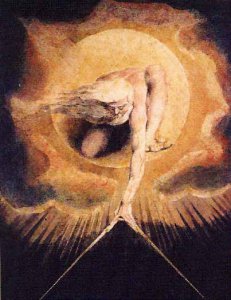Does the Universe Need God?

September 16, 2010

In his newest book, The Grand Design, Stephen Hawking finally clears up all the confusion over the existence of God. Well, actually his program is not quite so grand. Hawking concludes that the universe simply does not need God. But what Hawking proves in The Grand Design is that some scientists make poor philosophers. Richard Dawkins proved this embarrassingly so in The God Delusion.
Frank Tipler of Tulane University suggests that Hawking has actually proven the existence of God.
In 1966, Stephen Hawking published his first — completely valid — proof for the existence of God. Over the next seven years, he followed this with even more powerful valid theorems proving God’s existence.
So how did Hawking, who successfully proved God’s existence, remain an atheist? Simple. He simply denied that the assumptions he used in his proofs were true. As a matter of logic, if the assumptions in a proof are not true, then the conclusions need not be true. What assumptions did the young Hawking make? He assumed that the laws of physics, mainly Einstein’s theory of gravity, were true. In the summary of his early research, namely his book The Large Scale Structure of Space-Time, Hawking wrote:
It seems to be a good principle that the prediction of [God] by a physical theory indicates that the theory has broken down, i.e. it no longer provides a correct description of observations.
Hawking then began working on quantum gravity, in hopes that God would be at last eliminated from the equations. Alas, it was not to be: God was even more prominent — and unavoidable — in quantum gravity than in Einstein’s theory of gravity. In his latest book, The Grand Design, Hawking has pinned his hope of eliminating God on M-theory, a theory with no experimental support whatsoever, hence not a theory of physics at all. Nor has it been proven that M-theory is mathematically consistent. Nor has it been proven that God has been eliminated from M-theory. There are disquieting signs (for Hawking and company) that He is also unavoidable in M-theory, as He is in Einstein’s gravity, and in quantum gravity.
In spite of what the atheist press is telling you, it’s looking bad for atheism today. And it is extraordinary the lengths an atheist like Hawking will go to avoid the obvious: God exists.
The alert reader will have noticed that in the above quote, Hawking did not actually use the word “God.” But this is what he really meant. To see this, let us recall just what the word “God” means.
Consider the opening words of the (original) Nicene Creed: “We believe in one God, the omnipotent Father, Maker of all things visible and invisible.” These words give the basic definition of “God” used by Christians and Jews: God is the Cause of everything, but He Himself has no cause. God is the Uncaused First Cause. In his Second Way, Thomas Aquinas proves the existence of the Uncaused First (efficient)Cause, and Aquinas concludes, “to which all give the name ‘God’ (quam omnes Deum nominant).”
So now let us return to the theorems of the young Hawking. By following the history of the universe back into time — in other words, by following the causes of the current universe back into time — Hawking proved that all of these causes had a common cause; a common cause that did not itself have a cause. This common cause was an Uncaused Cause that was beyond the control of the laws of physics, beyond the control of any possible laws of physics. Rather, the entire universe began at this Uncaused First Cause.
In exactly the same way that Aquinas used the word “create,” we can say that the Uncaused First Cause, whose existence was proven decades ago by Hawking, “created” the universe.
Hawking called this Uncaused First Cause a “singularity.”
But given the properties of this “singularity,” it is God. So I have replaced the word “singularity,” which Hawking actually used in the above quote, with what it really means according to Aquinas.
Read the rest HERE.




